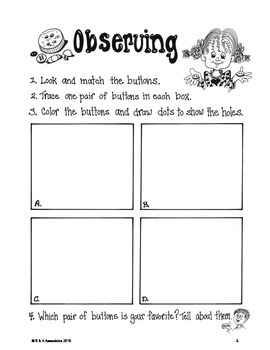

- Science observing tad poles first grade lesson how to#
- Science observing tad poles first grade lesson full#
This is a great opportunity to pull some worksheets or for emergent readers for students to interact with. You can also have them play a game where they take turns matching the stages of the cycle with their corresponding descriptions.

As a fun activity to reinforce the concept, you can have the students create models of the frogs in each stage of the life cycle. When not teaching, she can be found writing or on an adventure with her children and dogs.After students have been introduced to the frog life cycle, work together to create a visual diagram that outlines the main stages of the life cycle, like egg, tadpole, froglet, and adult. She has been teaching middle school science and STEM courses for 18 years. Kelly Rende has a Masters degree in Special Education.

Supplies you’ll need:Ĭheck Out These Additional 1st Grade Resources 1st Grade Art Projectsġst Grade Reading Comprehension Worksheets When you shine the flashlight on the glass of water, the light waves are refracted, or bent, causing the light to break into its various colors. This experiment shows how white light is a combination of all the colors of the rainbow. Make a Rainbowįirst graders love to learn about rainbows.
Science observing tad poles first grade lesson how to#
Allow your child to take the time to manipulate variables and make observations and discuss them with you during the experiments so they can also learn how to draw conclusions. The projects in the list below address the topics I mentioned above that 1st graders learn in school. Have a look! The Best 1st Grade Science Experiments
Science observing tad poles first grade lesson full#
In partnership with Teach Simple, whose marketplace is full of educational materials created by actual teachers (plus 50% of all revenues go to them), I’ve gathered 33 great kid-friendly science projects that your first grader will enjoy in the classroom or to pass the time by at home. So a good science experiment that supports these topics starts with a testable question that children will be able to answer at the conclusion of the investigation. Students this age learn how to ask a question that can be answered through investigation and observation. They learn about animals and how they adapt to and interact with their surroundings.Ĭhildren at this age also learn about the seasons, weather patterns, and the water cycle through the earth sciences, along with the phases of the moon.įirst graders are also introduced to the basic concepts of motion and forces where they explore how objects move, and they manipulate variables so they can compare cause and effect. Through the life sciences, first graders learn about the characteristics that differentiate living and nonliving things. What Science Topics Do 1st Graders Learn? Check Out These Additional 1st Grade Resources.What Science Topics Do 1st Graders Learn?.That means there are a lot of different types of science experiments to choose from when looking for an engaging (or easy) project for your class or at home.

In first grade science, children learn about topics within life, physical, and earth sciences. There are a lot of 1st grade science projects that can help children draw conclusions and make connections to the world around them.


 0 kommentar(er)
0 kommentar(er)
